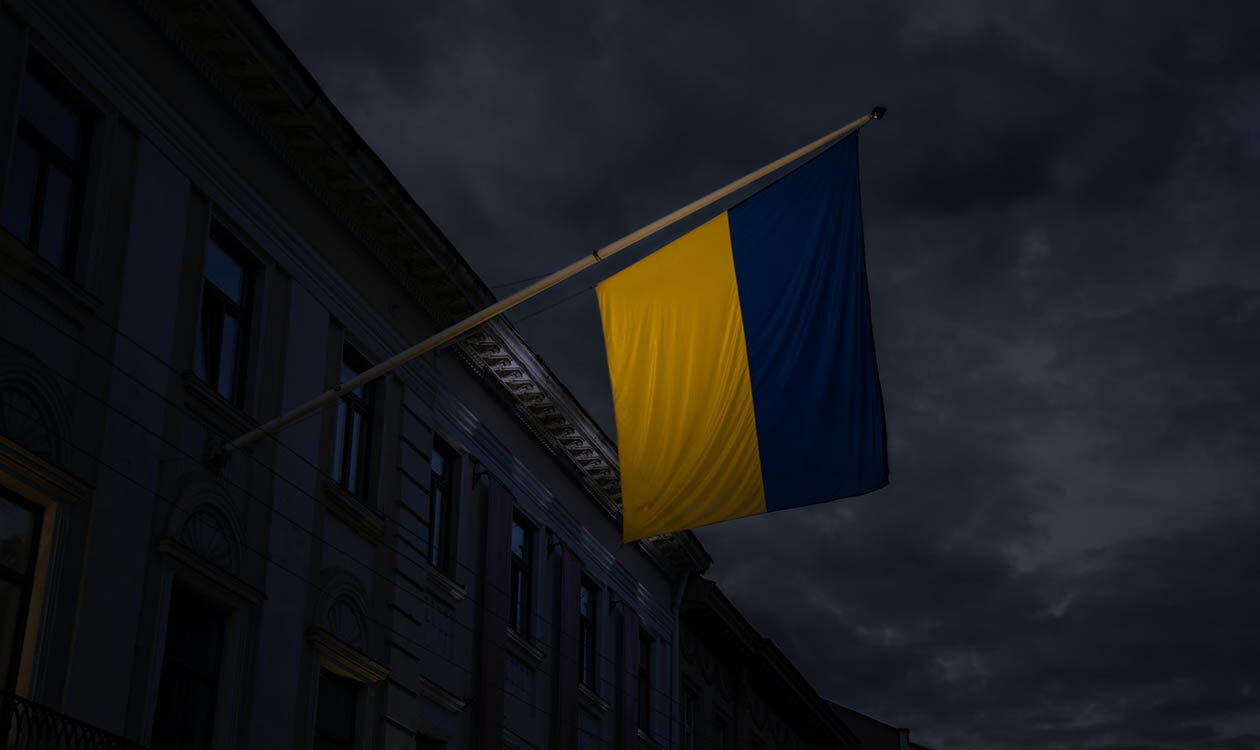ESL & Network et Antidox sont heureux d’avoir convenu un partenariat avec The Ambassador Partnership, cabinet de conseil britannique réputé et composé d’anciens ambassadeurs spécialistes de la résolution de conflits et experts en risques politiques (www.ambassadorllp.com).
It says something for the current febrile state of British politics that just before Christmas a request by the British Prime Minister for a data-driven analysis of the war in Ukraine should have made national headlines. It is perhaps worse that it was accompanied by speculation that Rishi Sunak was preparing to go soft on UK support for Ukraine.
Military strategy is an art, not a science. But there is nothing wrong with analysis or in basing that analysis on hard facts. It is the only way leaders can take the sound decisions they must take. Any strategic analysis should be properly broad and separated from the information war in which both sides are currently engaged. It needs to distinguish between the merely important and the things that really matter.
It didn’t take a genius to forecast that we would be in for a long haul over Ukraine. During 2022 there were many things I expected and others I didn’t. In the first category come Putin’s dogged insistence on pursuing his doctrinaire and increasingly unrealistic goal of re-integrating Ukraine into Russia, and his retreat from threats of nuclear weapon use. So, sadly, does the Russian Army’s increasing disregard for the conventional rules of war, typified by their Defence Ministry’s on-the-record statement that national energy infrastructure and other facilities serving the civilian population are legitimate targets. My colleague Charles Crawford has written an excellent piece on what lies behind these uncomfortable aspects of the Russian psyche[1] and I won’t go into it further here.
Among the things I didn’t quite expect were the extent of the adaptability and flexibility shown by Ukraine (both militarily and in the political and information sphere), the way in which Western/NATO/EU support for President Zelensky has held up (despite a minor few ups and downs seized on by the media), and the extent to which Russian popular unhappiness with Putin’s ‘special military operation’ has surfaced despite the regime’s efforts to keep it under wraps.
It’s also notable how carefully Putin’s supporters (China, India and South Africa, for example) have kept their distance from the war. Iran has been a predictable exception. The West would do well to take seriously, and counteract, Russia’s efforts with minerals producers in Africa and elsewhere as part of a well-planned strategy to mitigate the effects of sanctions.
What happens next? I strongly agree with Charles (and, I think, most other commentators) that now is not the time for negotiations to end the conflict. Indeed, as President Zelensky has said, I rather doubt that time will come before Putin and his cronies go. The rift between them and Ukraine is so deep that the war seems likely to conclude one way or the other on terms dictated by the facts on the ground rather than diplomatic negotiations. If they are on the winning side, I don’t see the Ukrainians giving up easily on the return of all their territory (including Crimea), reparations and the holding to account of those responsible for all the misery caused. Those in the West who have seen their energy prices triple or quadruple may feel the same way. It is encouraging to see growing support in the EU and from a former British Prime Minister for the establishment of a War Crimes Tribunal on Ukraine on the Nuremberg model to hold Putin and his associates to account, if necessary, in absentia.
There thus remains significant uncertainty over whether 2023 will be a major turning point. Nearsimultaneous press reports before Christmas suggested Putin is planning (i) a new major offensive (perhaps from Belarus) and (ii) to flee to Venezuela or Argentina. Much will clearly depend on whether the Russians are able to mobilise a new and largely conscript army with old or inadequate equipment into an effective fighting force. Much will also depend on the support Ukraine receives (over and above its natural military ingenuity) to deter/fight off an offensive and negate the current Russian missile campaign.
Relevant too are the effects of sanctions. Despite Putin’s protestations to the contrary, there is evidence they are biting hard in key areas. There will be a time when the Russian economy degrades to the point where it becomes unsustainable. No-one knows how long this will take; the outside estimate I have heard is two years.
As many have said, the conflict is showing us a new form of war. An interesting broadcast interview on 29 December between the Director of the UK’s GCHQ and the US Director of National Intelligence highlighted the role information will play in the eventual outcome. NATO and the West need to learn from this evolutionary change and draw conclusions for their own defence. If Ukraine is hobbled because of a lack of international support there will be dire implications for us all. There are signs the US is learning this lesson as Pentagon support for Ukraine expands. Noone should advocate military campaigns against civilians, but Russia has intensified its missile bombardment of Ukraine over the Christmas period. If it considers energy and other infrastructure a legitimate target it may be time to enable Ukraine, if it wishes, to return the favour despite the obvious risks of escalation.
It is not too soon to begin drawing longer-term lessons. As NATO and Ukraine became closer 15years ago, one issue worrying Alliance planners was whether Ukraine would ever be defensible against a resurgent Russia. A year ago, I would have said the answer was ‘No’; now the jury may be out.
I hope these will be among the issues included in Prime Minister Sunak’s data-driven analysis. The defence of territory and key institutions (and ensuring the viability of those institutions) is the first priority, bar none, of any state. The twentieth century teaches us that priority doesn’t change during (and perhaps especially in) times of economic difficulty. UK military stocks have been depleted by the support given to Ukraine and procurement times are lengthy. Plus, there are important lessons of adaptation to be learned both militarily and in under-resourced diplomacy and related areas. So perhaps the time is right to re-instate to commitment made by Sunak’s two predecessors to spend 3% of GDP on defence, even if it means increased taxes or public expenditure cuts elsewhere.
Publié par The Ambassador Partnership le 5 Janvier 2023 (www.ambassadorllp.com)
[1] https://www.tandfonline.com/eprint/PB7MB9IWHRUZEGGCBYZF/full?target=10.1080%2F23739770.2022.21 54503&




